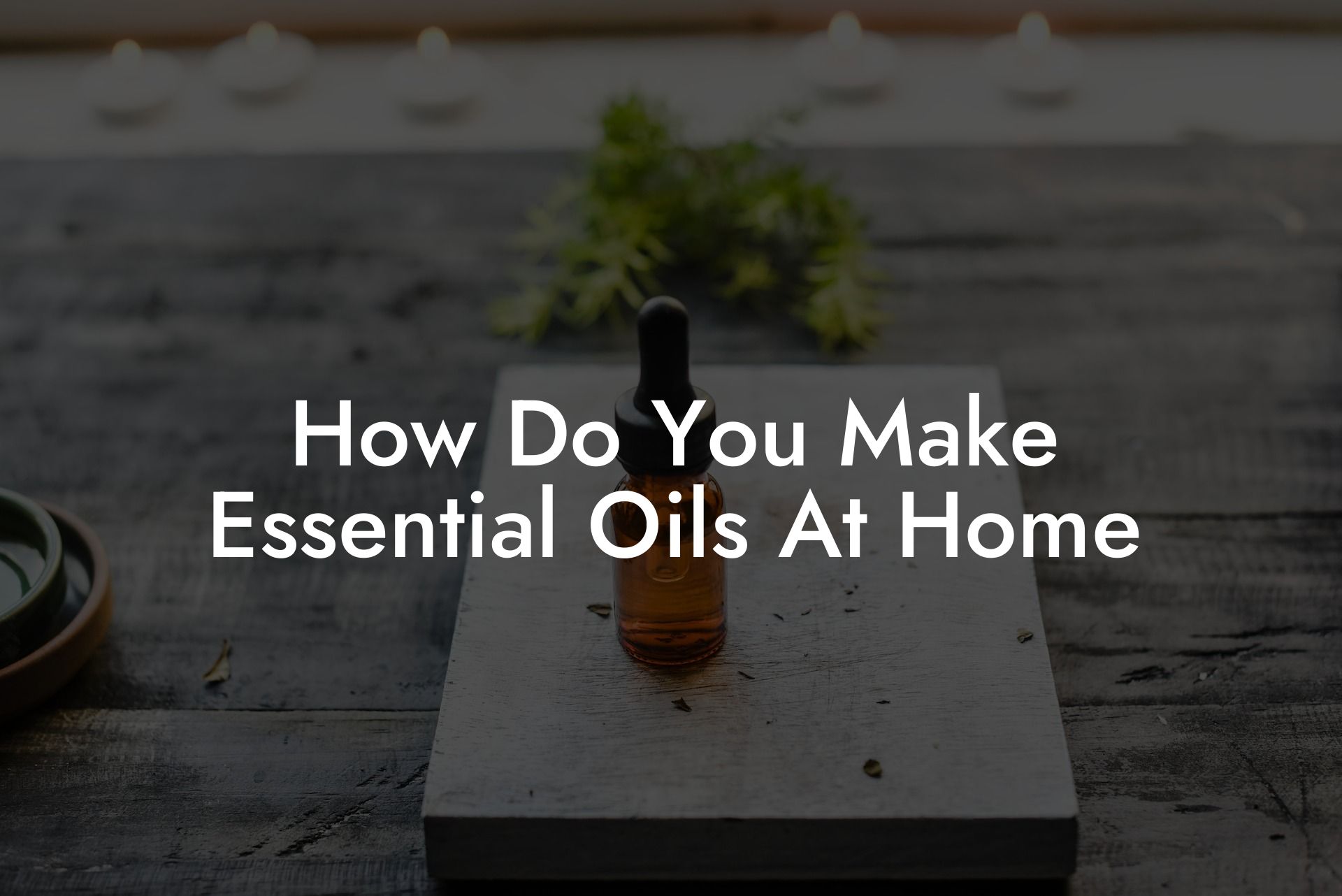Discover the art and beauty of making your own essential oils at home. With a little know-how, some simple equipment, and a passion for fragrances, you can create customized oils to relax, rejuvenate, and heal your body and mind. In this guide, we will explore the process of making essential oils at home, revealing the secrets of aromacology and providing tips to help you get started on your essential oil journey.
Table of Contents
Choosing Your Plant Material
One of the most important aspects of creating essential oils is selecting the right plants. You can use fresh or dried plant material, depending on your preference and the intended use of the oil. Choose plants with strong fragrances, such as lavender, lemongrass, and eucalyptus. You may also want to consider plants known for their healing properties, like chamomile or rosemary.
When collecting plant material, ensure that it is free of pesticides and other chemicals. Harvest early in the morning after the dew has evaporated for optimal freshness.
Extraction Methods
There are several extraction methods commonly used to make essential oils, including steam distillation, cold pressing, and solvent extraction. Each method has its advantages and disadvantages, depending on the plant material and the desired result.
Steam Distillation
Steam distillation is the most popular method for producing essential oils. It involves passing steam through plant material, causing the aromatic compounds to evaporate and condense into a separate container. This method is suitable for most plant types, providing pure and concentrated essential oils.
You will need a still, a heat source, and a condenser for this process. You can buy specialized equipment or create a DIY setup using a pressure cooker or slow cooker, a glass container, and ice.
Cold Pressing
Cold pressing, or expression, is often used for extracting oils from citrus fruits, like oranges, lemons, and grapefruit. This method involves mechanically breaking down the plant material and then pressing it to release the oils. Since no heat is involved, the oils obtained through cold pressing retain their full aroma and therapeutic benefits.
If you want to try cold pressing, you can use a citrus juicer to extract the oils and separate them from the juice.
Solvent Extraction
Solvent extraction is suitable for delicate plant materials that cannot tolerate heat, such as rose petals or jasmine. This method involves using a solvent, like ethanol or hexane, to dissolve the aromatic compounds, followed by evaporating the solvent to obtain the essential oil.
Due to the possibility of residual solvents, this method may not be ideal for those seeking therapeutic essential oils for aromatherapy. It is, however, appropriate for creating fragrant oils for candles and other non-therapeutic uses.
How Do You Make Essential Oils At Home Example:
Imagine you want to create your own lavender essential oil using steam distillation. You will need fresh lavender flowers, a pressure cooker, a glass container, and plenty of ice.
1. Fill the pressure cooker with water, and place a heat-safe glass container in the center.
2. Arrange the lavender flowers around the glass container, ensuring they do not touch the water.
3. Place the lid on the pressure cooker, and route a tube from the pressure valve to the glass container’s opening.
4. Heat the pressure cooker, and begin the distillation process. The steam will pass through the flowers, extracting the essential oil.
5. Use ice to cool and condense the steam, which will collect in the glass container as lavender essential oil.
6. Allow the oil to settle and separate from any leftover water before decanting into a storage container.
Now that you’ve learned how to make essential oils at home, you can start experimenting with different plant materials and methods. By creating your unique blends, you can enhance your aromatherapy experience, elevating your mood, and offering relief from stress. Don’t forget to share this helpful guide with friends and family, and explore other essential oil guides on Oshu Oils. As you delve deeper into the world of aromacology, remember that Oshu Oils’ Artisan Essential Earth Oils are expertly crafted to help you achieve optimal wellbeing.





















